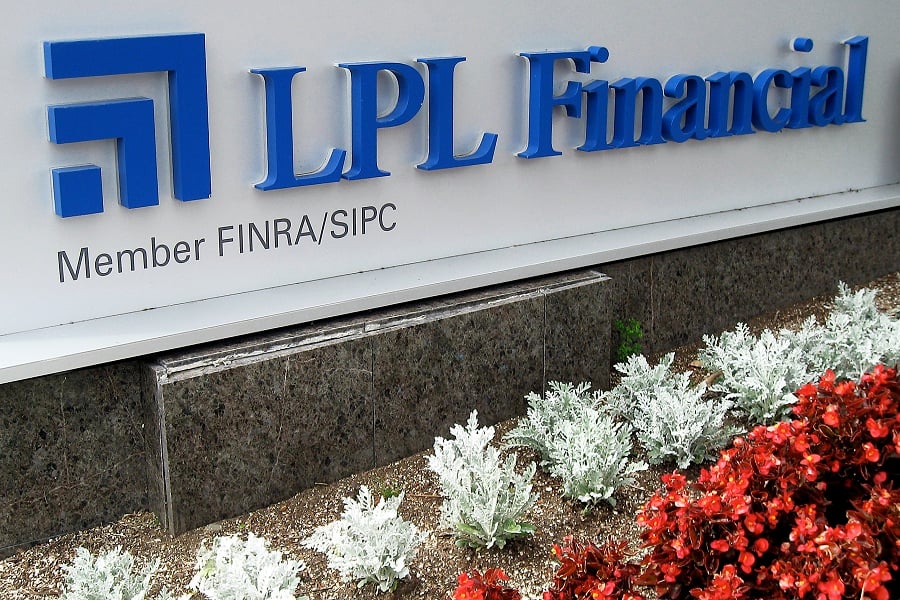Independent broker-dealer LPL Financial has set its robo-adviser account minimum to $5,000, standard fare in a market that may soon see low or even zero-account minimums.
Earlier this year, LPL announced it was using
BlackRock's FutureAdvisor for its adviser-driven digital advice platform. The name of the offering is Guided Wealth Portfolios, and comes a year after the company
first announced it was rolling out a robo for its advisers. It is currently in the testing phase.
Companies across the industry are picking up robo-adviser technology, and all firms approach details of these services differently. The $5,000 minimum is not unheard of, but in the future those numbers may be even lower, perhaps even non-existent, said Sean McDermott, a senior analyst at Corporate Insight.
"Looking forward a year or two, we may be looking more toward a $0 route," he said. "We wouldn't be shocked to see that, especially when it comes to working with a digital advice provider."
Dropping minimums was a trend last year. When Vanguard came out of testing its robo in May 2015, it dropped its account minimum to
$50,000 from $100,000. A few months later, Wealthfront, an independent robo-adviser,
dropped its minimum to $500 from $5,000. In November, Personal Capital
slashed its minimum to $25,000 from $100,000 as well.
Advisers' who use these platforms are faced with competition from retail robo-advisers, which may not have any minimum. Betterment and its adviser offering, Betterment Institutional, have no account minimums, for example. Charles Schwab & Co. offers its retail robo, Schwab Intelligent Portfolios, with
no minimum, though its Institutional Intelligent Portfolios platform has a $5,000 minimum.
"We made that functionality available to advisers so that they don't have to turn away any clients that want to be a part of their practice," said Tom Kimberly, general manager at Betterment Institutional.
The cons of an imposed account minimum include stifling advisers' flexibility and discretion over the clients they place on the platform, or running the risk of losing out on potential clients, who may not qualify for the set amount or who would therefore refrain from testing out the service.
"It is a stronger marketing tool and potential client funnel, because you are theoretically allowing prospects to go ahead and have a taste of the value without sticking any money with the company," Mr. McDermott said.
Still, proponents of a set starting point say it weeds out the users who won't take it seriously.
"You want the client to have some skin in the game," said Darren Tedesco, managing principal of innovation and strategy at Commonwealth Financial Network. His firm is in the process of building out a client-facing platform for its advisers, which will have an account minimum somewhere between $1,000 and $5,000. "If you go in with a $0 minimum and they put in $10, that's not a commitment of any sort."
Account minimums were once a way to differentiate the amount of time advisers spent on their clients, said Jonathan Swanburg, an adviser at Tri-Star Group in Houston. Robo-advisers serve the purpose of working with clients who may have been a referral from existing clients and do not have enough assets but will grow over time.
Connecting with the next generation of existing clients will be advisers' biggest opportunity in using robo-advisers, Mr. Tedesco said.
"I don't see this as a huge pipeline improvement for them to drastically grow their business," he said. Rather, it will be an extension.
What should be considered when marking a minimum is the service attached to the offering itself, said Brad Matthews, chief executive of Trizic, a robo-adviser vendor that works with financial institutions. Trizic does not impose account minimums but the firms that use its technology may.
"If you have humans highly involved in managing the assets or humans highly involved in onboarding then it will be more expensive," Mr. Matthews said. "But for the most part if the technology is doing most of the work I don't see a need [for a minimum]."







